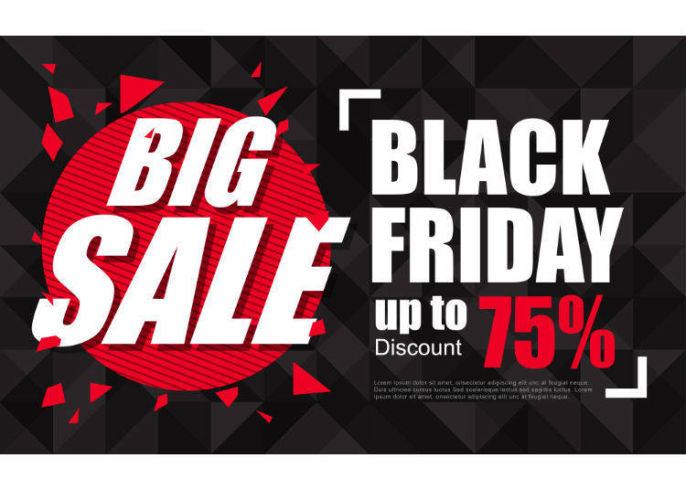- Cashflow Is King previous post
- Customers are fickle previous post
- Barriers to Industry count previous post
- Always keep chipping away previous post
Never discount
- Price is only part of the equation
- Build relationships

Tying in with, "Customers are Fickle", is "Never Discount".
Really? Yes, really.
You've seen store sales, huge,"Discounts".
When I've been in, Hong Kong or Japan, certain times of the year are Huge Sale times. Items can be up to 80% or 90% off!

Is it really a discount? Or is it more around the price that the product should be?
If you bought the product at any other time, have you been ripped off?
For certain products, making the customer feel like they received value, is not really a discount, it is a sales ploy.
Your product is too cheap, Double or No Sales
When I first brought in my wire stripping machines, I thought that a reasonable price would be a 20% margin.
I advertised a very attractive price, expecting my product to sell like hot cakes. I didn't sell any.
Over a Christmas dinner, I asked a veteran sales person what I was doing wrong?
He said, "What's wrong with your product?"
I replied, defensively, "Nothing!"
He said, "Then, why are you selling it so cheap?"
I replied, in my ethical way, "It's a fair price."
He said, "It just comes across as Chinese crap!"
So, I doubled my price.
I sold out.
At certain times I did reduce the price. Purely, to make a savvy customer feel like they made a bargain. But, in reality, I would have been happier to sell the product for much less.
Leverage
There are some people who just want to win the battle of negotiation.
They will lie.
"I found that price cheaper somewhere else."
Then, I suggest that you go and grab that price. I wouldn't feel content to sell lower than what would make me feel good about my business.
Many times customers would return to buy at the original price.
You just bite your tongue and treat them with a smile.
Coverage
Having a price buffer provides some protection for any times that you have to provide a refund, or cover a mistake of some sort.
I had a man turn up with a young woman. The young woman was obviously drunk.
They were going to buy one of my machines, which weigh around 110 kgs (242 lbs). It is a pretty decent lift for 2 people.
I forklifted the machine onto his ute & asked if he had a forklift at the other end.
He said, No, that he, and the girl, would manage it off. I was skeptical.
About an hour later he returned with a dinted machine, with a broken fan belt & drive shaft.
"Your machine is faulty."
I laughed and said, "You dropped it."
He denied it. I couldn't be bothered arguing. My sales were adequate to supply him with another machine, and, I didn't mind having some spare parts.
You need to pick your battles
The benefit of starting at a high price point is that you can adjust your price whenever you like.
You have the advantage to start price negotiations at a price where you know you will win.
One friend who owned a retail store told me, " When a customer walks through my door, I have an 80% chance of a sale."
From that point, an unprepared customer will likely pay too much if they haven't done their homework.
When to discount?
There's always a point where you may have to break the rule.
If you do want to provide a "Black Friday" kind of discount, then you can, especially, if you need to clear unwanted stock.
Clearing old stock back into cash can be a way to reduce the cost of a product mistake, or to make room for when an improved product will move into the marketplace.
There were 6 generations of machines over the 6 years I was selling them.
It reflected the improvements in Chinese manufacturing. It also demonstrated the global requirements in safety.
The last 2 generations incorporated a safety switch & improved wiring.
As my new shipments were arriving, I could always provide a better price for my existing units.
Better to not sell anything, than lose your pants
If you get to the point where you can't make ends meet.
Be mindful that you might be better not doing a business at all.
That's the trap of getting into a business, particularly, if you are trying to move product.
There was a buzz when you first started. When things clicked, you saw your plan come together.

But, you may experience a point where it isn't fun anymore.
With the office supplies, I ended up getting tired of the merry-go-round.
I was tired of it. It was going beyond my original motivations.
It was meant to provide some extra money, while still leaving me time.
I was moving 6-8 pallets of paper per month, manually delivering boxes every week. Delivering cartridges. Collecting old ones to recycle. Trying to move into new office equipment. Repairing people's printers.
But there was never enough margin to expand the business, to employ people.
Then the GFC hit. Customers didn't pay on time. They wanted better prices.
The scrap metal industry became quite nasty and ruthless once copper went from $6/kg to $A10/kg. People started entering the market with machines that looked like mine, but were really poor quality. At that time, I always hinted that my machines were not at my "business address". I didn't want thieves trying to break into my home. My machines were at a storage location that was provided for free.
So, why are you in business?
Is there an end goal?
Are there signs that you should be doing something else?
It is a scary prospect to think about when something should end.
Why am I asking all of these questions?
Well, why are you discounting?
Are you making what you want from your product or service?
If you are not making enough to survive, is it your vanity?
How can you turn it around? How do you walk away from a mistake?
What are you competitive advantages?
What makes your business any better than your competition?
If you don't have any advantage and you resort to discounting. You need to be careful not to be in a race to the bottom.
In Australia, clothing shops tend to have a tremendous amount of competition. People try to brand themselves to create enough differential in their product to get some advantage.
A friend's friend used to sell clothing at a local market. Their target customer was middle aged women. Low to mid priced casual wear.
He had some tracksuit pants for $10.
Another store sold the same tracksuit pants, they dropped the price to $8.
My friend matched that price.
Then the price dropped to $6.
He was frustrated. Why are we competing? He knew that they both bought the product for $5! It wasn't worth selling it so cheaply.
So, being an immigrant to Australia, with Vietnamese family connections, he sourced clothing from a factory in Vietnam, imported containers of clothing and stored them in the bedrooms of his home.
Then, he sold the clothing at the market, but he also started selling the clothing wholesale.
He didn't need to compete with price anymore.
If his competitor wants to lower the price, fine, he can match it because he had the lowest price.
Differentials
Before you go down the discounting route, think carefully about what you offer relative to your competition.
If the product is generic. That product A, is the same as product B, then you will be in difficulty regarding price.
Maybe you provide a better service, or your location is more suitable or you just want to be stalwart. Not all customers care about the lowest price. Convenience is also important. Or maybe they just want to spend money.
I had many customers who supported me because they didn't like the big stores.
The big stores had better prices than me. They have a price matching policy.
But I provided good service. My customer felt happy they were helping a small time guy.
My motto at the time, filled with confidence was;
Interesting post. I'll definitely pay more for quality.
Doing research into what you want is good too. There is nothing wrong with finding a good deal. 😅
I'm all about a good sales deal! Hahaha
It's a funny world, really. I don't like to pay above the odds and often can't afford to, so I'd find it had to mark up products much. I'd probably be making the same mistake as you with the wire stripping machine!
@tipu curate
Upvoted 👌 (Mana: 16/32)
Yes, it opens your eyes that there are many types of people. And because my market was niche, I needed to have a higher price to cover the limited market I was in. That way it made my time worth it. In one instance, I drop to Horsham to sell a machine. Another time I drove to Adelaide. Having a good margin covers these extra costs.
From a business perspective you need to understand your market. I've never been a guy who had to have gadgets in the garage. There were a number of people who bought a machine just to have it in their garage.
I figure they would never use it. It would sit there with their other rarely used tools.
One person wanted to strip the wire of electrical appliances. The quality of copper in an Iron Cord or a Kettle is absolute crap! I tried to tell him that he would spend hours to justify the cost of the machine. But he had to have it.
(The minimum I would strip was housing TPS cable. That cable ended up with 40-55% copper vs the plastic coatings.)
Hubby used to work at a place that threw out no end of heavy duty wiring. He'd bring it home and we'd strip it with a Stanley knife and cash it in. I used to wonder if it was worth the cost of the blades we'd go through, never mind the cost of a machine to do the job! Appliance wiring is the worst production for effort, then you have old headphones and charger cables which break so frequently and that must be like salvaging spider web threads!
This post was shared in the Curation Collective Discord community
If you are a community leader and/or contest organizer, please join the Discord and let us know you if you would like to promote the posting of your community or contest.
community witness. Please consider using one of your witness votes on us here for curators, and upvoted and reblogged by the @c-squared community account.@c-squared runs a